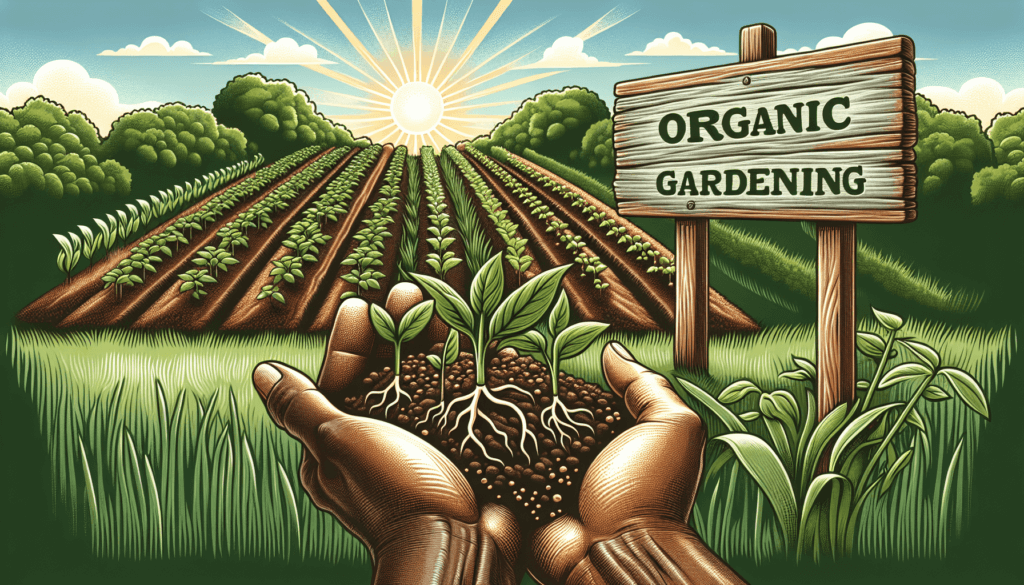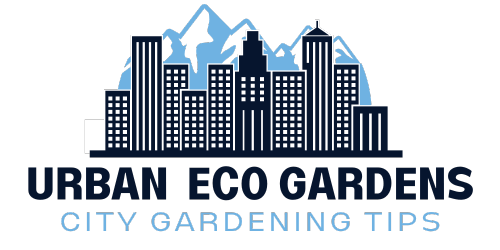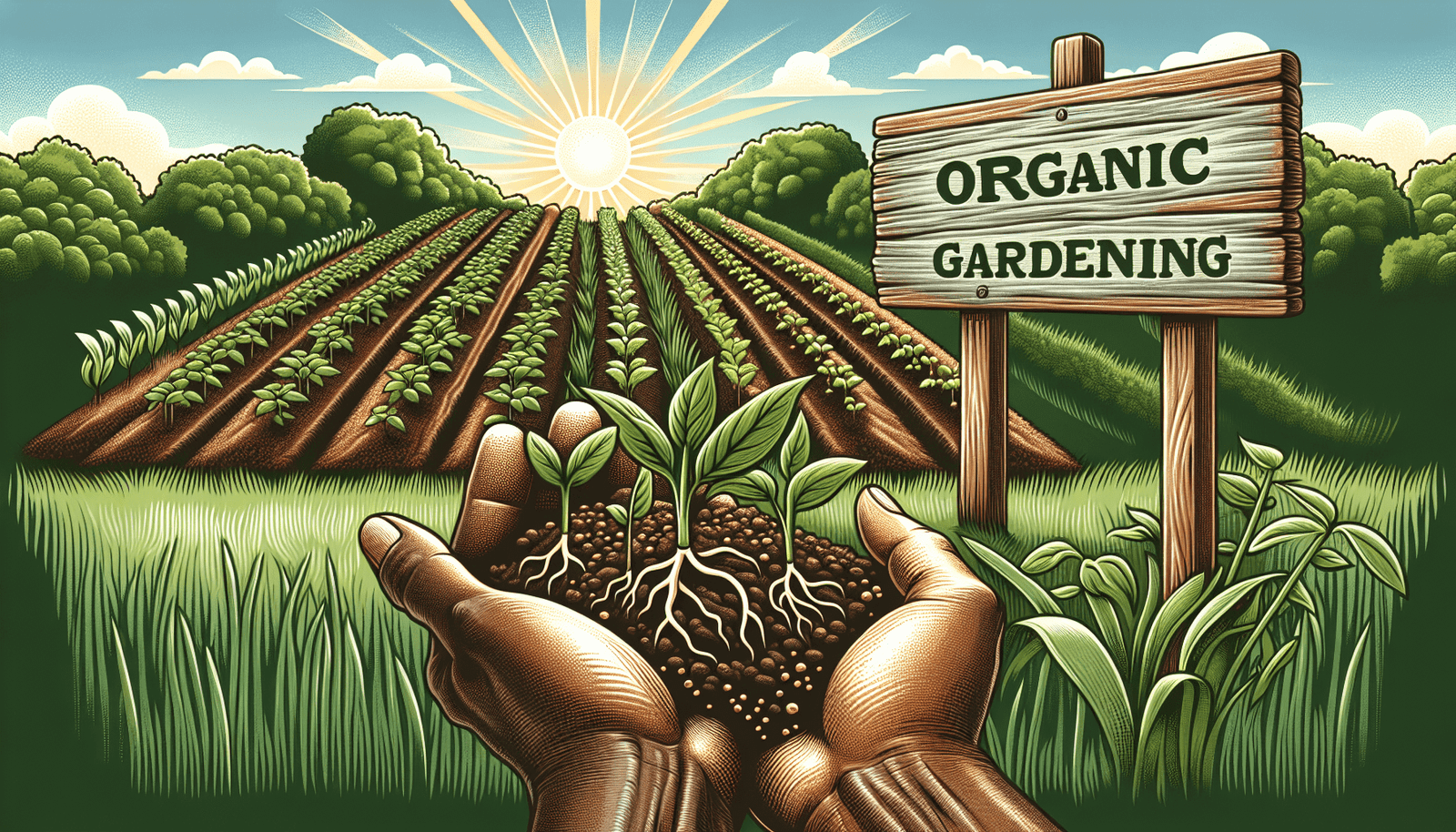Looking to develop your green thumb and learn the secrets behind organic gardening? Look no further! This article will provide you with all the necessary information on finding organic gardening classes near you. Whether you’re a beginner or have some experience, these classes will equip you with the knowledge and skills needed to grow your own organic produce. So, get ready to dig in and get your hands dirty as we explore the world of organic gardening together!
Local Horticultural Societies and Garden Centers
Benefits of joining a local horticultural society
Joining a local horticultural society can be a fantastic way to enhance your knowledge and passion for organic gardening. These societies offer numerous benefits that can help you grow and thrive as a gardener. By becoming a member, you gain access to a network of fellow gardeners who can provide valuable insights and share their experiences. You’ll have the opportunity to attend educational programs, workshops, and seminars presented by horticultural experts. Additionally, many societies organize garden tours, where you can visit beautiful and inspiring gardens in your area. These tours can be a great source of inspiration and ideas for your own organic garden.
Finding organic gardening classes at garden centers
Garden centers are not just a place to buy plants and gardening supplies; they also often offer organic gardening classes. These classes are an excellent way to expand your knowledge and learn new skills. Whether you are a beginner or an experienced gardener, there are classes available for every level of expertise. Garden centers often collaborate with knowledgeable local gardeners or horticulturists to provide specialized classes on various organic gardening topics. From soil health to companion planting, these classes cover a wide range of subjects. By attending these classes, you can acquire practical tips and techniques that will help you achieve success in your organic gardening endeavors.
Types of classes offered
Garden centers offer a diverse range of classes tailored to different interests and skill levels. For beginners, introductory classes cover the basics of organic gardening, such as soil preparation, seed starting, and plant care. As you gain experience, more advanced classes delve into topics like permaculture, organic pest management, and sustainable gardening practices. Many garden centers also offer specialized classes focusing on specific plants, such as organic vegetable gardening or herb cultivation. Additionally, you may find classes that focus on specific techniques, such as composting, container gardening, or creating a wildlife-friendly garden. With such a wide variety of offerings, you are sure to find classes that suit your interests and needs at your local garden center.
Community Gardens and Urban Farms
Community gardens as a resource for organic gardening education
Community gardens are vibrant hubs of organic gardening knowledge and experience. They serve as excellent resources for individuals seeking to learn about organic gardening through hands-on engagement. By participating in a community garden, you can observe and learn from experienced gardeners who cultivate their own plots. They offer a wealth of firsthand knowledge and practical advice that can significantly enhance your organic gardening skills. Additionally, community gardens often organize workshops and sharing sessions where members can exchange gardening tips, discuss challenges, and explore new techniques together. Collaborating and learning from fellow gardeners in a community setting can foster a sense of belonging and provide ample opportunities for organic gardening education.
Learning opportunities at urban farms
Urban farms offer a unique learning experience for those interested in organic gardening. These farms are often located in urban areas and provide valuable education on sustainable food production, organic farming practices, and resource conservation. Many urban farms host educational workshops and events where you can learn about soil health, composting, and seasonally appropriate planting strategies. You may also have the opportunity to volunteer and work alongside experienced farmers, gaining practical skills and insights into agricultural practices. Urban farms often emphasize the importance of community involvement and may organize workdays or volunteer programs where you can contribute to the farm’s operations while learning from experts in the field of organic agriculture.
Organic gardening workshops
In addition to community gardens and urban farms, there are various organizations that conduct workshops dedicated to organic gardening. These workshops are designed to provide participants with in-depth knowledge and practical skills to cultivate thriving organic gardens. Workshops often cover topics such as organic fertilizers and soil amendments, weed and pest management without the use of harmful chemicals, and sustainable gardening practices. They may also focus on specific aspects of organic gardening, such as organic seed-saving techniques, propagation methods, or the benefits of biodiversity in the garden. Attending these workshops can significantly enhance your understanding of organic gardening and empower you to implement sustainable practices in your own garden.

Universities and Colleges with Horticulture Programs
Finding organic gardening classes through educational institutions
Universities and colleges with horticulture programs are excellent resources for individuals seeking comprehensive organic gardening education. These institutions often offer a variety of classes specifically focused on organic gardening. By exploring the course catalogs and program offerings of local educational institutions, you can find classes that align with your interests and personal goals. Whether you are looking for a single class or a more structured program, educational institutions can provide a wealth of knowledge and hands-on learning opportunities.
Courses and programs offered
Horticulture programs at universities and colleges offer a wide range of courses dedicated to organic gardening. These classes cover diverse subjects, including soil science, plant nutrition, organic pest management, and sustainable landscape design. Students learn about the principles and practices of organic gardening, gaining a deeper understanding of ecological systems and natural approaches to cultivating plants. Additionally, many institutions offer certificate or degree programs in horticulture with a focus on organic gardening. These programs provide a comprehensive curriculum that combines classroom instruction with practical fieldwork, allowing students to develop a strong foundation in organic gardening principles and techniques.
Opportunities for hands-on learning
One of the key advantages of pursuing organic gardening education through universities and colleges is the opportunity for hands-on learning. Many horticulture programs incorporate practical training elements, such as student-run organic gardens or on-campus farms, where students can apply their knowledge in a real-world setting. These hands-on experiences allow students to gain valuable skills and reinforce their understanding of organic gardening practices. Furthermore, educational institutions often have research farms or botanical gardens where students can learn from experts and participate in ongoing studies related to organic gardening. By immersing yourself in a university or college horticulture program, you can access a wealth of practical resources and mentors to support your organic gardening journey.
Local Master Gardener Programs
Role of master gardeners in promoting organic gardening
Master gardeners play a vital role in promoting organic gardening practices within communities. These knowledgeable individuals receive specialized training from agricultural extension offices or educational institutions and dedicate their time to sharing their expertise with others. Master gardeners serve as ambassadors for organic gardening, providing guidance and advice to individuals interested in cultivating organic gardens. They promote sustainable practices, offer solutions for common gardening challenges, and advocate for environmentally friendly approaches to gardening. By participating in master gardener programs, you can tap into a wealth of organic gardening knowledge and receive guidance from experienced individuals passionate about cultivating healthy and sustainable gardens.
Master gardener classes and workshops
Master gardener programs often offer a comprehensive curriculum of classes and workshops aimed at educating aspiring organic gardeners. These classes cover a wide range of topics, from organic soil management and composting techniques to integrated pest management and plant propagation. Master gardener workshops provide opportunities to learn new skills and gain practical experience through hands-on activities. These programs also offer access to expert guest speakers who share their insights and provide valuable tips and tricks for organic gardening success. By enrolling in master gardener classes and workshops, you’ll become part of a supportive community of like-minded individuals and have access to knowledgeable mentors who can guide you through your organic gardening journey.
Benefits of participating in a master gardener program
Participating in a master gardener program offers numerous benefits for organic gardeners. Firstly, you gain access to a network of experienced gardeners who are eager to share their knowledge and provide guidance. The collective wisdom of the master gardener community can be a valuable resource as you navigate the challenges and opportunities of organic gardening. Secondly, participating in a master gardener program often includes opportunities for volunteering in the community. This allows you to apply your newfound knowledge and skills while making a positive impact on your local area. Finally, completion of a master gardener program provides recognition and certification, which can enhance your credibility as an organic gardener and open doors for future opportunities, such as teaching or mentoring others in organic gardening practices.

Local Agricultural Extension Offices
Services provided by agricultural extension offices
Agricultural extension offices are local resources dedicated to providing education and assistance to individuals interested in agriculture and gardening. These offices are typically affiliated with universities or government agencies and offer a wide range of services. When it comes to organic gardening, agricultural extension offices can provide valuable resources and information. They offer educational materials, such as fact sheets and guides, which cover topics ranging from organic soil management to organic pest control. Agricultural extension offices also conduct soil testing, helping you understand the nutrient content and pH of your soil, which is crucial for organic gardening success. Additionally, they can provide answers to specific gardening questions and offer recommendations based on local conditions.
Organic gardening workshops and classes
Many agricultural extension offices organize workshops and classes specifically focused on organic gardening. These educational opportunities allow individuals to deepen their understanding of organic gardening practices and learn from experts in the field. Workshops may cover topics such as organic fertilizers, composting techniques, and organic weed management strategies. They may also address common challenges faced by organic gardeners, such as pest control without the use of chemicals or organic methods for disease prevention. Attending these workshops can provide you with practical skills and knowledge that you can immediately apply in your own garden.
Expert advice and resources
One of the primary advantages of turning to agricultural extension offices for organic gardening information is the access to expert advice and resources. Extension agents and trained staff members are well-versed in organic gardening techniques, local conditions, and plant varieties suitable for organic cultivation. They can offer personalized guidance tailored to your specific needs and answer any questions you may have about organic gardening practices. Additionally, agricultural extension offices often maintain demonstration gardens and research plots where they conduct experiments and trials to evaluate the effectiveness of different organic gardening methods. The research findings and resources available through these offices can significantly enhance your organic gardening journey.
Online Platforms and Courses
Benefits of online organic gardening classes
Online organic gardening classes provide a flexible and accessible way to learn about organic gardening from the comfort of your own home. These classes offer numerous benefits for individuals seeking to expand their knowledge and improve their organic gardening skills. One of the primary advantages is the convenience and flexibility they offer. Unlike traditional classroom-based classes, online classes allow you to learn at your own pace and fit your studies into your busy schedule. They are also accessible to individuals living in remote areas or lacking access to local organic gardening resources. Furthermore, online classes often provide multimedia content, such as videos and interactive quizzes, which can enhance the learning experience and make the information more engaging and memorable.
Websites and platforms offering online classes
Numerous websites and platforms offer online organic gardening classes, catering to a wide range of interests and skill levels. Some popular platforms include Udemy, Coursera, and Khan Academy. These platforms offer both free and paid classes, allowing you to choose the option that suits your budget and desired level of commitment. Additionally, many universities and educational institutions offer online courses in horticulture or organic gardening. These courses often provide a structured curriculum and the opportunity to interact with instructors and fellow students through discussion forums and online communities. Exploring these online platforms and course offerings can provide you with a wealth of organic gardening knowledge without leaving the comfort of your own home.
Topics covered in online courses
Online organic gardening courses cover a broad range of topics that encompass all aspects of organic gardening. They typically start with the fundamentals, such as soil health, organic pest control methods, and the importance of biodiversity in the garden. As the courses progress, they delve into more advanced topics, such as organic plant nutrition, sustainable irrigation practices, and permaculture principles. Some courses may also focus on specific types of organic gardening, such as organic vegetable gardening, organic flower gardening, or organic herb cultivation. Additionally, online courses often provide practical guidance on organic gardening techniques, from seed starting and transplanting to harvesting and preserving your organic produce. By enrolling in online organic gardening courses, you can gain comprehensive knowledge and develop the skills necessary to thrive as an organic gardener.
Local Nonprofit Organizations
Role of nonprofit organizations in promoting organic gardening
Nonprofit organizations play a vital role in promoting organic gardening practices and spreading awareness about the benefits of organic cultivation. These organizations focus on community engagement, education, and advocacy, working tirelessly to empower individuals to grow organic gardens and make a positive impact on the environment. They often collaborate with community members, schools, and other institutions to provide education and resources on organic gardening. Nonprofits foster a sense of community and support, connecting individuals with shared interests and providing platforms for learning and collaboration. By engaging with nonprofit organizations dedicated to organic gardening, you can become part of a larger movement promoting sustainable and environmentally friendly gardening practices.
Organic gardening classes and workshops offered by nonprofits
Nonprofit organizations frequently organize organic gardening classes and workshops as part of their educational initiatives. These classes cover a wide range of topics, from the basics of organic gardening to advanced techniques for specific types of gardens or plants. Workshops may focus on soil health, composting, organic pest management, or designing productive and sustainable garden spaces. Nonprofits often bring in experienced organic gardeners, horticulturists, and environmental experts to lead these classes and share their knowledge. By attending these classes and workshops, you can learn practical skills, gain valuable insights, and connect with fellow organic gardeners who share your passion for sustainable gardening practices.
Volunteer opportunities and community engagement
Nonprofit organizations offer countless opportunities for individuals to get involved in organic gardening and contribute to their local communities. Many nonprofits have community gardens or urban farming projects where individuals can volunteer their time and efforts. By volunteering in these gardens, you can learn from experienced gardeners, develop new skills, and make a tangible difference in creating sustainable food sources for your community. Nonprofits also organize community events, such as seed swaps, plant sales, and educational outreach programs, where you can engage with like-minded individuals and share your knowledge and experiences. By actively participating in nonprofit initiatives, you can become an advocate for organic gardening and help create a greener and more sustainable future for all.
Local Farmers’ Markets
Learning opportunities at farmers’ markets
Farmers’ markets are not only great places to shop for local, organic produce, but they also offer valuable learning opportunities for organic gardeners. At farmers’ markets, you can interact directly with local farmers who specialize in organic cultivation. These farmers are often passionate about their work and eager to share their knowledge and experiences with customers. By striking up conversations and asking questions, you can gain insights into organic gardening practices specific to your local climate and growing conditions. Farmers may provide tips on soil preparation, pest control, or crop selection suited for your region. Farmers’ markets serve as a bridge between producers and consumers, fostering a sense of community and establishing connections that can greatly benefit your organic gardening journey.
Farmers’ market workshops and demonstrations
Many farmers’ markets organize workshops and demonstrations focused on organic gardening and sustainable farming practices. These events provide opportunities to learn from experts and gain practical skills applicable to your own garden. Workshops may cover topics such as organic pest management, soil amendment techniques, or the art of composting. Demonstrations allow you to observe experienced gardeners in action, learning best practices and witnessing efficient organic gardening techniques firsthand. These workshops and demonstrations often take place at the market itself or nearby community spaces, creating a supportive and engaging environment for learning and sharing knowledge. By participating in farmers’ market workshops and demonstrations, you can expand your organic gardening repertoire and connect with local organic farmers who can serve as invaluable resources.
Connecting with local organic farmers
Visiting farmers’ markets provides a unique opportunity to connect directly with local organic farmers. By establishing relationships with these farmers, you can gain access to a wealth of knowledge and resources specific to your local area. Local farmers can offer advice on local planting schedules, varieties that thrive in your region, and specific organic gardening strategies tailored to your climate. Building connections with organic farmers can also open doors for further learning opportunities, such as farm visits or workshops hosted by the farmers themselves. By engaging with local organic farmers, you can develop a sense of shared community and receive valuable guidance to support your organic gardening endeavors.
Seed Companies and Nurseries
Seed companies offering educational resources
Seed companies are not only a source of high-quality seeds for organic gardening, but they also often provide educational resources to support gardeners. Many seed companies produce catalogs or online guides that include helpful information on organic gardening techniques and plant care. These resources often cover topics such as seed starting, transplanting, and cultivating healthy plants using organic methods. Some seed companies even offer instructional videos or blog posts with gardening tips and tricks. By exploring the educational resources provided by seed companies, you can access valuable information to enhance your organic gardening skills and make informed decisions about seed selection and plant care.
Nurseries hosting organic gardening classes
Nurseries, known for offering a wide selection of plants and garden supplies, often provide additional services that benefit organic gardeners. Some nurseries host organic gardening classes to educate customers and promote sustainable gardening practices. These classes may focus on a variety of topics, including organic soil building, choosing and caring for organic plants, or natural methods of pest control. Nursery classes provide valuable hands-on learning experiences, allowing you to see and handle plants while learning how to care for them organically. Additionally, nursery staff members are often knowledgeable about organic gardening and can offer personalized advice and recommendations based on your specific gardening needs and goals.
Expert guidance on seed selection and plant care
Seed companies and nurseries are staffed with knowledgeable individuals who can provide expert guidance on seed selection and plant care for your organic garden. When choosing seeds, it is crucial to select varieties that are well-suited for your climate, growing conditions, and desired outcomes. Seed companies can help you navigate through the vast array of options and choose seeds that will thrive in your specific environment. Additionally, nursery staff can provide information on plant care, offering advice on watering, fertilization, and handling pests naturally. By seeking guidance from seed companies and nurseries, you can make informed decisions about seed selection, understand the specific needs of your plants, and set yourself up for organic gardening success.
Libraries and Community Centers
Organic gardening resources available at libraries
Libraries are often overlooked as valuable sources for organic gardening information, but they offer a wealth of resources to support your journey. Many libraries maintain collections of books, magazines, and online databases that cover various organic gardening topics. These resources provide a treasure trove of knowledge, allowing you to explore different techniques, learn from experienced gardeners, and gain inspiration for your own organic garden. Libraries also often host gardening-related events, such as author talks, workshops, and seed swaps, where you can connect with like-minded individuals and expand your organic gardening network. By tapping into the resources available at your local library, you can access a vast library of organic gardening knowledge and connect with a community of fellow gardeners.
Workshops and classes at community centers
Community centers are vibrant spaces where individuals can come together to engage in various activities, including organic gardening workshops and classes. Many community centers offer workshops and classes on organic gardening that cater to a wide range of interests and skill levels. These classes cover a plethora of organic gardening topics, such as building healthy soil, organic pest control, or techniques for successful crop cultivation. Workshops often employ hands-on learning approaches, allowing participants to practice organic gardening techniques and gain practical experience. Furthermore, community centers serve as meeting points for local gardeners, creating opportunities for networking, sharing experiences, and collaborating on organic gardening projects. By participating in workshops and classes at community centers, you can learn from experts, connect with fellow gardeners, and enhance your organic gardening journey.
Free or low-cost learning opportunities
One of the significant advantages of utilizing libraries and community centers for organic gardening education is the availability of free or low-cost learning opportunities. Many libraries offer workshops and classes at no cost, providing access to valuable knowledge and experiences without financial barriers. Community centers also often provide affordable or subsidized workshops to make organic gardening education accessible to all members of the community. These free or low-cost learning opportunities allow individuals with limited resources to develop their organic gardening skills and build a strong foundation in sustainable gardening practices. By taking advantage of these offerings, you can enrich your organic gardening journey without straining your budget.


